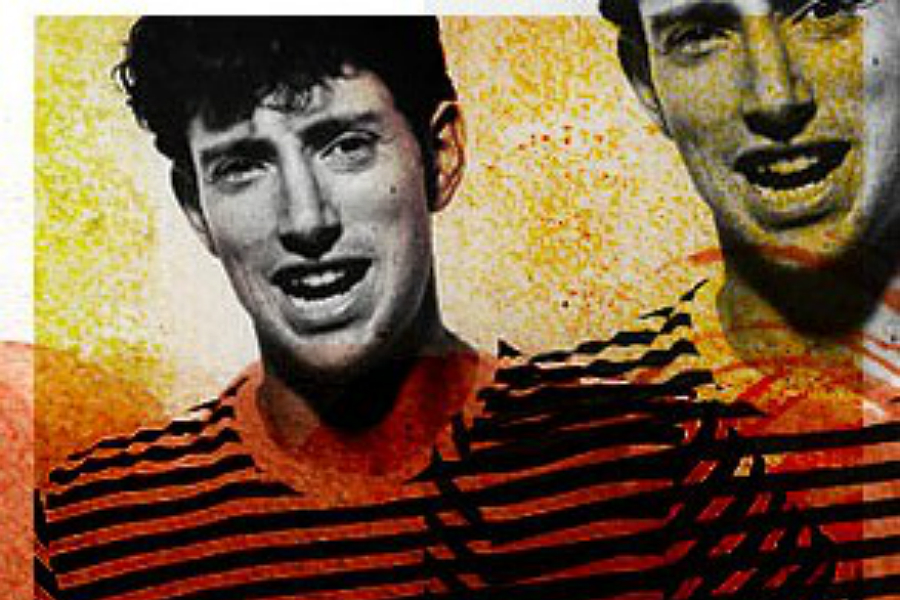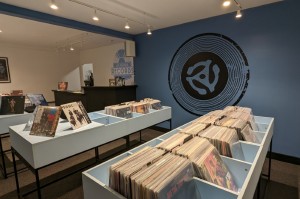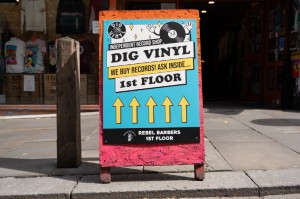Jonathan Richman, Modern Lover

This weekend sees an influential yet almost unsung hero take to the stage at The Kazimier…
Geek, nerd, cry-baby, straight; just some of the nicer things Jonathan Richman has no doubt had shouted at him in anger over a varied career. 61 later this year, Richman is something of a contradiction. Born in Boston, Massachusetts, if this is the first time you’ve heard of him, don’t stress it, it’s maybe only by chance anyone has heard of him at all, and it’s thanks in no small part to one man’s love of The Velvet Underground.
In 1967, a 15 year old Richman swapped a record with one of his buddies. His end of the swap was The Velvet Underground and Nico, the band’s Andy Warhol produced debut. For the teenage Richman, this record was the start of a journey which saw him graduating from Elvis and the doo-wap laden charts to nothing short of an infatuation for the proto-punk of the Velvets and The Stooges. His first steps are to contribute writing inspired by his heroes to Boston fanzines Vibrations, and Fusion.
Also a musician, Richman starts writing and composing , and here’s the contradiction – his upbringing means his songs are reliant on the only world he knows, one of middle-class suburbia, inhabited by convenience stores, family drives and AM radio – a far cry from the S&M and heroin his idols are singing about and sometimes living through. In spite of this anomaly, he must have felt his prayers were answered directly by the G man himself when The Velvets played a number of regular slots in Boston. Seeing his chance, Richman effectively stalked the band until finding the courage to introduce himself. Incredibly, and seemingly with little fuss, this culminates in a support slot at a gig after Velvets guitarist Sterling Morrison had said he didn’t see a reason why not.
Safe to say there were no encores that night, but he’d done enough to earn himself a place on then manager Steve Sesnick’s couch, having travelled back to New York with the band. He took a job at Max’s, a familiar haunt and venue for the Velvets, while trying to make his way in the profession. If everything seemed like it was falling in to place, it wasn’t. Despite the connections he’d made, the timing wasn’t quite right: one half of the creative force of the Velvets, John Cale, had already left after one last one of many fallings out with Lou Reed, who would follow suit shortly after, to be replaced by sometime band member and Reed soundalike, Doug Yule.
The period hadn’t been a wasted one though. On his return to Boston, Richman put together a band of his own, The Modern Lovers, playing those paeans to the suburban existence he’d been writing about, but with a distinct VU two and three chord sound. Richman was quoted in later years as saying: “I started a group because I was lonely and figured that way I’d make friends”, but there’s an unspoken truth that it was also his attempt to continue The Velvets legacy, if only in his image rather than Reed and Cale’s. The song best exemplifying this is Roadrunner, his ode to cruising with ‘the radio on’. Its childlike championing of a lifestyle outside the Velvets world, while simultaneously helping itself to the riff from Sister Ray, is one of rock and roll’s most perfect incongruities.
Things then came full circle for Richman when a bunch of songs including Roadrunner, Astral Plane, Pablo Picasso and She Cracked, were produced by none other than John Cale, who said Richman’s music was “interesting because it was so tentative and unsure – but that became its strength in the end. It was great that somebody could be very weak and use that quality…”
One of those nine tracks, She Cracked, featured on a Rough Trade collection and turned me on to Richman. The version on the compilation, produced by Kim Fowley (who would later go on to manage Joan Jett’s The Runaways), grabbed me immediately, and the next day I rushed out and bought the Modern Lovers record; at first joyous, then devastated to find on reading the inlay that it was the only thing they recorded. True, it’s a shame that Richman’s reputedly enormous ego lead to the fracture of the band shortly before they had a chance to secure a record deal with Warner, but their influence is there for all to see.
In the frantic and defiant She Cracked, you hear Julian Casablancas and The Strokes, but his legacy doesn’t start or end there; both the Sex Pistols and Joan Jett covered Roadrunner, while the likes of Weezer, Frank Black and Violent Femmes are infused here and there by Richman’s idealism and pop-rock sensibilities. In Richman, garage rock has a gift that keeps on giving, so let’s hope that each subsequent generation stumbles across Roadrunner, She Cracked, Pablo Picasso and The Modern Lovers.
Jonathan Richman appears @ The Kazimier this Sunday, 8pm, £15





